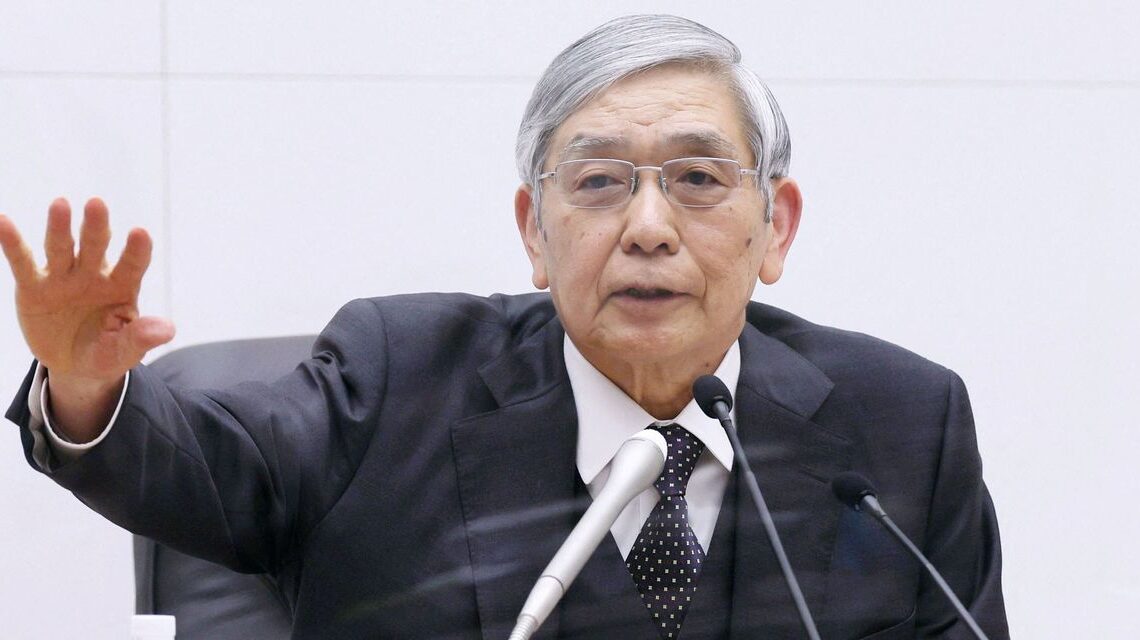TOKYO—Japan’s core inflation rose at the fastest pace in nearly 41 years in November, fueling market speculation that the Bank of Japan would look to tighten monetary policy in 2023.
After the central bank’s surprise move Tuesday to raise its cap on a key interest rate, market watchers are split over whether more is coming next year. But they agree inflation will be a key factor in the decision.
Core consumer prices—a measure that covers all prices except fresh food—rose 3.7% from a year earlier in November, the fastest pace since December 1981, government data showed Friday.
Beneath the headline figure are other signs that Japan has broken out of its decadeslong rut of near-zero price changes. If so, that would give the Bank of Japan more room to consider fully unwinding the easing framework that Gov.
Haruhiko Kuroda
has built up after nearly a decade on the job.
Mr. Kuroda’s policies include negative short-term rates and a cap on the yield of the 10-year government bond. On Tuesday, the bank raised that cap to 0.5% from 0.25%, driving up interest rates across the board.
Daiwa Securities economist Mari Iwashita said the framework could be up for review as soon as next summer under a new BOJ governor. Mr. Kuroda’s term expires in April, after two more policy meetings, and he is expected to step down.
“A virtuous cycle is starting to work with the price trend rising moderately,” Ms. Iwashita said.
She cautioned that the central bank would want to confirm first that wages were rising solidly in spring labor negotiations in Japan and that the U.S. economy wasn’t in deep trouble.
The Federal Reserve and the European Central Bank have raised rates aggressively this year, which pushed the dollar up against the yen and put pressure on the Bank of Japan to follow suit.
In a sign of growth in underlying inflation, Japan’s consumer prices excluding fresh food and energy prices rose 2.8% from a year earlier in November, well above the BOJ’s 2% target. That suggests inflation isn’t driven mainly by higher prices for imported oil and natural gas.
Some policy makers see a change in Japan’s decadeslong deflationary mind-set, which has made consumers hesitant to spend when prices rise and in turn made it difficult for companies to adjust their price…
Click Here to Read the Full Original Article at WSJ.com: World News…

